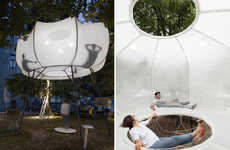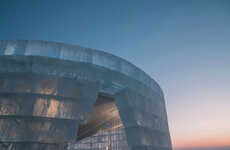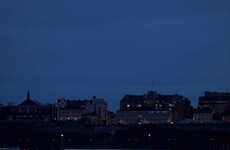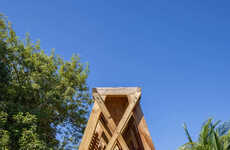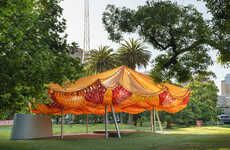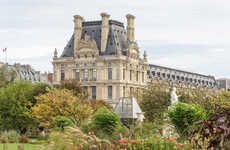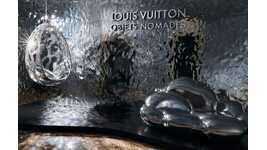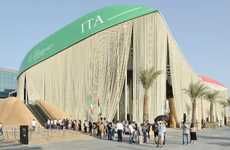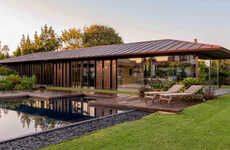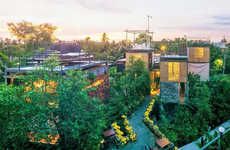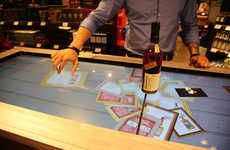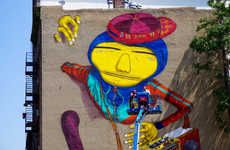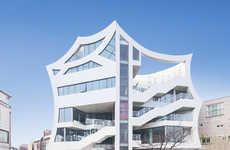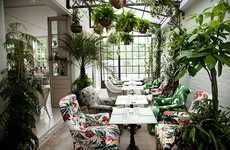
The 'Cloud Seeding Pavilion' Uses White Balls As Cloud Particles
Ady Floyd — August 25, 2015 — Art & Design
References: moduarchitecture & dezeen
MODU created the Cloud Seeding Pavilion, which features 30,000 white plastic balls that move around the clear window-like roofing. Each plastic ball is designed to look like a particle from a cloud that is floating and swaying in the wind.
The title of this pavilion is a direct interpretation of its name. Cloud seeding is a weather modification that attempts to alter the amount of cloud precipitation. The roof of this pavilion mimics this idea by using free-moving white balls that float above the heads of those using the pavilion. The balls are designed to move whenever there is wind. Whether it is a light breeze or forceful gust, the balls instantly react by moving about the enclosed roofing area.
The canopy that contains the tiny balls is made of mesh fabric and the entire structure takes up 2,500 square feet of space.
The title of this pavilion is a direct interpretation of its name. Cloud seeding is a weather modification that attempts to alter the amount of cloud precipitation. The roof of this pavilion mimics this idea by using free-moving white balls that float above the heads of those using the pavilion. The balls are designed to move whenever there is wind. Whether it is a light breeze or forceful gust, the balls instantly react by moving about the enclosed roofing area.
The canopy that contains the tiny balls is made of mesh fabric and the entire structure takes up 2,500 square feet of space.
Trend Themes
1. Interactive Roofing Designs - Innovative designs of pavilion roofs that utilize interactive elements, such as moving balls, create an engaging and dynamic experience for users.
2. Weather-inspired Architecture - Architectural designs that draw inspiration from weather phenomena, like cloud seeding, offer unique and visually striking structures.
3. Kinetic Installations - Installations featuring kinetic and movable components provide an immersive and ever-changing environment for people to explore and interact with.
Industry Implications
1. Architecture - Architects can explore the use of interactive elements and weather-inspired designs to create visually stunning and engaging structures.
2. Art Installations - Artists and designers can incorporate kinetic and movable components into their installations to create captivating and dynamic experiences for viewers.
3. Experiential Design - Event planners and experience designers can utilize interactive roofing designs and kinetic installations to create memorable and immersive environments for attendees.
0.9
Score
Popularity
Activity
Freshness


